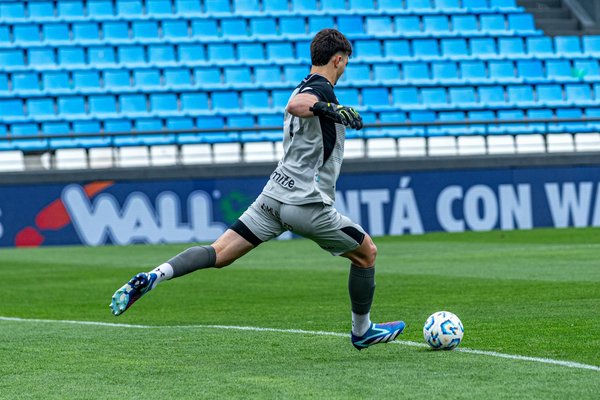Understanding the Importance of Team Cohesion
To fully appreciate the significance of team cohesion in football, one must first understand the intricate dynamics that exist within a football team. The essence of a successful team lies in its ability to work seamlessly as a unit, not just during the game but also in preparation and recovery phases. Enhanced team cohesion directly influences football performance by promoting effective communication, strategic execution, and emotional support among team members.
Off-field activities play an underappreciated yet crucial role in fostering this unity. By engaging in diverse activities beyond the training ground, teams can cultivate strong relationships that translate into effective on-field performance. These activities can range from informal social gatherings to structured organized events, each contributing to building trust and camaraderie.
The benefits extend beyond just improved communication. Players often experience heightened motivation and a sense of belonging, which ultimately contributes to a more synchronized and effective on-field strategy. By emphasizing team cohesion, teams can gain a competitive edge, ensuring each member is aligned with the collective goal, further enhancing overall performance on match days.
Innovative Off-Field Team Building Strategies
Enhancing team cohesion isn’t confined to the football pitch. Innovative strategies for team development off the field are equally vital. Engaging in diverse exercises can create robust bonds among players, crucial for synchronizing efforts during matches.
Physical Team-Building Activities
Physical activities serve as a fundamental component in shaping strong team dynamics. They not only build stamina but foster a sense of camaraderie. Exercises like obstacle courses or cooperative games encourage players to communicate and collaborate effectively. Through these challenges, teams develop trust and understanding, which are key for seamless on-field interaction.
Social Engagement and Relationship Building
Enhancing bonds through social interaction plays a significant role in team development. Engaging in casual outings or structured social events allows players to connect on a personal level. This deeper relationship translates into a more cohesive team effort. Teams that prioritize social engagement often experience improved communication and a strong support system.
Mental Training and Sports Psychology
Sports psychology is integral in nurturing mental resilience and team unity. Techniques such as visualization, mindfulness, and goal setting help players mentally prepare and maintain focus. Successful teams utilize psychological strategies to empower players, enhancing their ability to perform collectively under pressure.
Actionable Tips for Fostering Team Unity
To achieve exceptional team cohesion, integrating daily habits that nurture communication and trust is essential. Daily rituals, such as team huddles or regular feedback loops, play a crucial role in maintaining open lines of communication. These practices ensure that all members are aligned with a unified vision, ultimately strengthening the bond among players.
Establishing common goals and shared values acts as a cornerstone for effective team engagement. When players work toward a collective objective, it naturally fosters a sense of belonging and motivation. Clearly defining these goals helps in setting expectations, allowing each member to understand their role in the grand scheme of team success.
Addressing conflicts constructively is vital to building team resilience. Conflicts, if managed properly, present opportunities for growth and enhanced understanding among teammates. Implementing conflict-resolution strategies, such as mediation sessions or team-building workshops, can prevent disputes from escalating and keep harmony intact.
By adopting these practical tips, teams can create an environment where unity thrives, directly impacting their perseverance and performance both on and off the field.
The Long-Term Impact of Team Cohesion on Performance
Recognizing the long-term impact of team cohesion on football performance is crucial for sustaining success. Performance metrics provide a tangible assessment of how cohesive teams contribute to consistent win rates, often better than those with lesser unity.
Correlation Between Team Cohesion and Win Rates
The effect of strong team bonds extends beyond individual matches. Cohesive teams exhibit improved win rates over sustained periods. Teams with a tightly knit structure generally execute strategies more efficiently, leading to higher performance consistency and a tangible impact on their success records.
Trends and Future Outlook
Current analysis shows an upward trend in incorporating advanced team bonding strategies in football. As teams worldwide embrace these methods, their influence on overall success becomes apparent. Innovating in this area remains key, with data indicating a positive correlation between refined team cohesion strategies and enhanced team success. Looking ahead, the future of football will likely see even greater emphasis on these dynamics.
Understanding and implementing cohesive strategies can define long-term success, offering teams an enduring competitive edge.
Case Studies of Successful Team-Building Programs
Exploring case studies of successful team-building programs provides valuable insights into effective team development strategies. High-performing teams, exemplified by those with impressive performance metrics, demonstrate strong cohesion that translates into success on the field.
Analysis of High-Performing Teams
Certain football teams stand out due to their team cohesion and strategically curated programs. Teams like the German national squad have historically championed unity, leading to consistent wins and robust performance metrics. The success they achieve underscores the significance of meticulously planned team-building strategies. Central to their approach is fostering an environment of trust and open communication, which significantly enhances their football performance.
Innovative Techniques from Global Football Teams
Global football teams employ unique methods for team development, with a noticeable impact on their success rates. For instance, clubs in Japan focus on culturally integrated team exercises, blending traditional practices with modern methodologies. A comparative analysis reveals that these innovative strategies positively affect performance metrics, establishing a blueprint for success. By studying these diverse approaches, one can identify key elements that bolster team cohesion and pave the way for lasting success.
